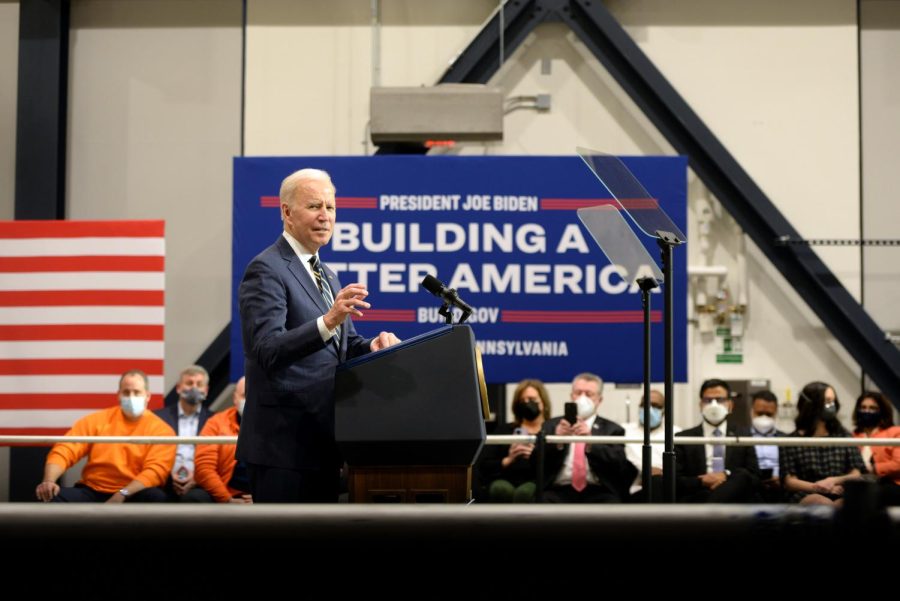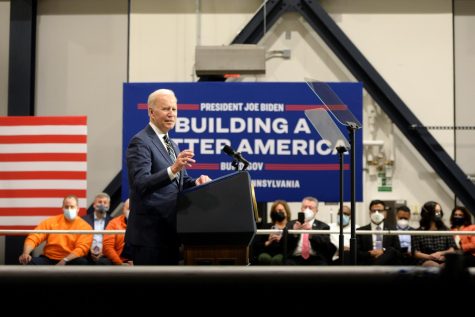Editorial: Take measures to reduce campus stress
January 29, 2013
Many of us who have friends at Carnegie Mellon University saw a lot of discussion and Facebook sharing surrounding a Dec. 12 opinions piece written by Katie Chironis for the online version of The Tartan, Carnegie Mellon University’s student-run newspaper. According to a Jan. 28 article in the Pittsburgh Post-Gazette, Chironis’ article, called “The happy mask: Carnegie Mellon must address stress culture” garnered attention because so many students at CMU (and at colleges everywhere) can relate to feeling anxious and overwhelmed.
Chironis cites CMU’s heavy workload as one factor in the campus’s unmanageable collective stress level, but she also says that CMU’s campus culture has a profound effect on students’ anxiety.
She wrote that overworking is encouraged, instead of condemned, at the high-achieving college: Students wear sleep deprivation and overachievement like badges of honor. The writer also expressed concern over a December suicide — the fifth at CMU in 10 years. She criticizes university administration for not being as active as they could be in reminding students to strike a balance in their lives and to take care of their well-being.
On Monday night, CMU’s administration held a town hall meeting to discuss the relationship between campus culture and well-being.
Although Pitt arguably does not have as predominant a stress culture as the one that Chironis describes at CMU, many of the issues that Chironis describes can be found among the student body at Pitt and at many other colleges, despite differing locations and cultures. For example, too many Pitt students struggle with mental health problems, and between every-other-week appointments and waiting lists, many find our campus’ counseling services inadequate.
Many students also know that it’s sometimes extremely difficult to escape academic or career-related competition among friends or acquaintances. A casual remark here and there about GPAs and finding out that a friend is applying for the same internship as you can cause some serious competition and hostility. All students should become more sensitive to the negative impact that comments about grades — even if meant well — might have on their peers who might already be facing academics-related anxiety.
Stress about “the real world” can be one of the biggest pressures that students face in college. So many of us, especially those approaching graduation, worry about where we’re going to go after college, what type of job we’ll do and which graduate school applications to fill out. These fears and worries can be distracting to the point of causing students to not reach their full academic potentials. Building a support network of friends could help students deal with some of the inevitable existential angst: Talking about stressors and concerns can give a sense of comfort.
Chironis wrote in her column that CMU students lack a team or cause to rally around. While at many colleges, students are united by a sports team, she says that CMU students are united by universal stress over workloads and extracurriculars. We’re lucky at Pitt to have sports teams that we support — through these and other extracurricular offerings, even our large student population can all feel connected and supported by our collective school spirit.
Although Pitt’s collective stress level is probably not as extreme as CMU’s, we can definitely improve. Fighting a college’s culture of stress starts at the individual level. Avoid acting in ways that further competitiveness among friends, seek balance in academics, jobs and social lives and be supportive of friends who are struggling. Although it might be difficult, consciously making our campus a more positive place will benefit all students and faculty members at Pitt.







